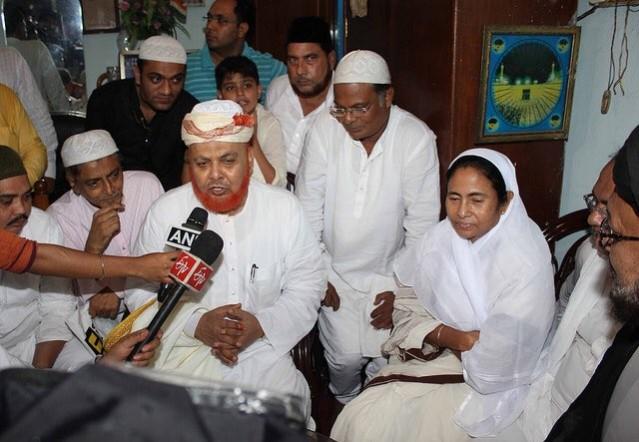
Daata Babar Mazaar is a popular shrine near Rajnagar in Birbhum district of West Bengal, about 250 kilometres from state capital Kolkata. Recently, the road that approaches the shrine from National Highway 60 near Suri, the district headquarters, saw a dome coming up as the main entry to the Majar. This has not gone down well with many local residents.
"Daata Babar Mazaar has been a very old shrine here. It's not just a popular place with the Muslims, but also Hindus. It has been about communal and social harmony. People have been visiting this place all throughout. What was the need to erect this dome now? Why appease minority sentiments so much," Haren Mondal (name changed), a local resident told International Business Times, India.
Mondal also added that the entry to Bakreswar geysers, a local Hindu pilgrimage site, has still not been built owing to what the authorities say is a "cash crunch".
"How then does the Daata Babar Mazaar have a gate if they don't have money?" an upset Mondal asked.
This is the crux; the growing story with Mamata Banerjee's Bengal today. She has taken, what the local majority communities feel, an explicit route to please minority sentiment and that is increasingly polarising Bengal's socio-political set-up. The BJP is just capitalising on the repercussions of this polarisation.
Why use Hanumana to counter Lord Rama?
The ruling TMC has found a new enemy in the BJP. But its way of taking on that enemy is not above suspicion.
For instance, a number of TMC leaders, including the chief of the party's Birbhum district unit, Anubrata Mandal, has been found promoting the worship of Lord Hanumana to counter the growing 'influence' of Lord Rama in the state. This is has made pwoplw angry.
"Didi [TMC supremo Mamata Banerjee] is saying the BJP is causing divisions among the people of Bengal by inciting Hindutva politics.
Then why are her own party's leaders promoting the worship of Hanumana, Lord Rama's loyalist? Do they think we are fools?" said Nirmal Kumar Bagdi (name changed), a local veteran who has been actively involved with Left politics in the state for decades.
This is precisely where the TMC in the state is digging its own grave. Earlier this week, a procession backed by a majoritarian organisation was lathicharged by police personnel while it tried to breakthrough barricades put in its way in Suri. While the TMC said it was done to stoke communal hatred, the BJP said the state government targeted a peaceful procession.
Again, the common man is not happy with how the TMC has treated things. Palash Barui (name changed), a local schoolteacher summarised it: "Whenever people from the minority community take out processions displaying weapons, the entire town is made open for them without a single barricade. This time, the majority wanted to carry out a procession peacefully, but the police did not allow them. This is shameless appeasement of the minorities."
Barui is not the only one who is harbouring such opinions. Diptesh Basak (name changed), a young banker who is posted in Suri, echoed the same:
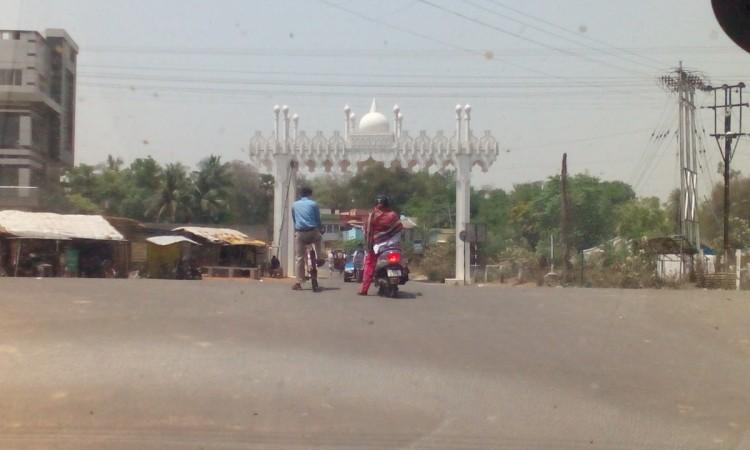
"Didi has put the future of Bengal at grave risk by playing with fire. The BJP-RSS need to come to power in this state. Otherwise, the Hindus are doomed."
Even the replacement of a local English-medium school on the Suri-Rajnagar highway in the district by a Muslim institute has not been taken well by locals.
"See how things are developing in Bengal. Soon, the Hindus will be in a minority," said Barui.
The replacement of one private institute with another might not have anything to do with religion, but the Banerjee administration's open appeasement has shaped the public perception on those lines.
"The Hindus in Bengal are in danger," this IBT correspondent heard in a chorus.
The many faces of Mamata Banerjee
It is not that the Mamata Banerjee government is not doing anything for the state. If one goes into the interiors, the last few years have seen visible changes.
Rural roads have been tarred; the chief minister's traffic safety awareness programme (Safe Drive, Save Life) has gone into overdrive with banners and signboards coming up even in the remotest corners; the police area demarcations in the districts have been clearly laid out; Kolkata itself is a much cleaner city now with good traffic and waste management – but all that is being eclipsed by the leader's fight with 'communal forces'.
![Infrastructure like roads in rural Bengal has improved much in these days. The Mamata Banerjee government has also put much emphasis on road safety [the green signboard in the picture stresses on safe driving] but all the good work is getting eclipsed by issues like minority appeasement and corruption. Rural West Bengal](https://data1.ibtimes.co.in/en/full/643417/rural-west-bengal.jpg?h=450&l=50&t=40)
She is reading and playing the game all wrong and undoing the good work of her administration. For any sensible mind out there in Bengal, it is very easy to understand who is playing the communal card in the first place. It is certainly not the BJP.
TMC's ideological crisis and obsolete self-defeating politics
The ruling party of Bengal has a strange or no ideological foundation and that is evident from its leaders worshipping Hanumana to counter Ram Bhakts.
Banerjee's pro-minority sops like stipends for Imams or joining their festivities to establish herself as the new messiah of the Muslims (something the Congress and leaders like Mulayam Singh Yadav and Lalu Prasad have done in the past) have also not gone down well with the Hindus and this has precisely created space for the BJP to make a mark.
This is the same politics that Mamata's late mentor Rajiv Gandhi played in UP, giving the saffron party the advantage to emerge on the national scene in the late 1980s and early 1990s. Similarly, Mulayam in UP and Lalu in Bihar also tried similar tactics to stop the majoritarian BJP, but they did not really stand the test of time.
The BJP, in the era of Modi, has emerged as a force that focuses on development more than communal polarisation and with Banerjee succeeding little in changing her state's economic fortunes, the politics of minority appeasement is always fraught with risk.
Of late, Banerjee was seen visiting the Jagannath Temple in Puri despite objections posed by a priest organisation and one suspects it is a soft overture at majority sentiment to balance out the BJP's rising influence in Bengal.
But all in all, the TMC supremo and her party have proved that they have virtually no ideological stand on political, religious or economic issues. What matters for them is the vote-bank.
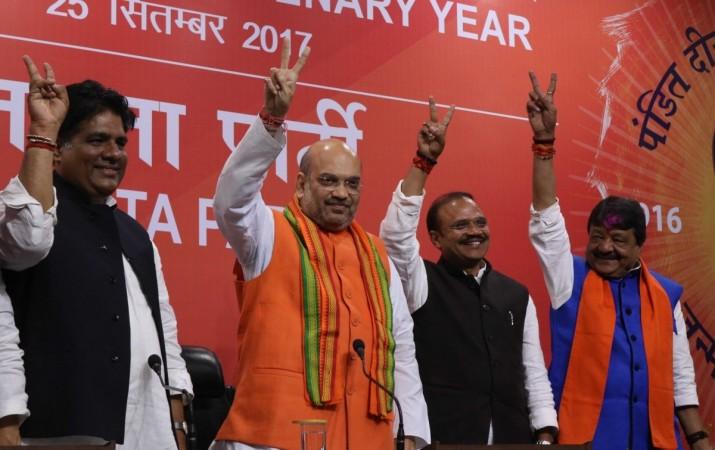
"Whatever they do for the Muslims is for votes but at the same time, they do not allow the Hindus to celebrate their own festivals, even peacefully," Ramkrishna Roy, the Birbhum district chief of the BJP, told IBT.
Speaking on the recent clash between members of a rally taken out on the occasion, with police personnel, Roy said: "The BJP was not a party to the rally. It was taken out by the Hanuman Jayanti Udjapon Committee [Hanuman Jayanti celebration committee] and was a spontaneous event. Yet, the police lathicharged it. The administration, on the other hand, stops the Hindus from carrying out their own festivities like Durga Puja."
Another local BJP leader also echoed the same sentiment: "On the day of Mahastami, the minorities created problems, but the police did not take any measures. The BJP can fight the TMC politically, but how can we fight the police?"
Roy also slammed the administration over the dome on the way to the Mazaar. He said the gateway was supposed to be for the local shrine in Bakreswar, but instead, the dome came up.
"When we asked for the gateway for Bakreswar, we were told it would not be possible because of the roadwork. But then this dome came up overnight. How?"
Banerjee is making it easier for the BJP
The political culture of Bengal is seeing a change and nobody other than Banerjee is responsible for making it happen. With the atheist legacy of the Left now eroded, the common Bengali identity is seeing communal dimensions becoming relevant. Though it is openly condemning Banerjee, the BJP will not be complaining deep within.
But how what are Muslims really gaining in Bengal?
A recent report in a Bengali daily said the Muslims in Bengal are finding the BJP a better option, something Roy also said. "A lot of Muslims are joining the BJP in Birbhum district. They have seen the worst under the TMC's rule. Nothing good is happening for them. It's all corruption and fake appeasement," he said.
And this story hasn't started with the Banerjee era. The Left Front, despite getting the support of the Muslims for a long time and claiming to be the guardian of minorities' interests, did not feel it necessary to give the community enough representation in its top body – the Politburo.
During 2001-06, when the Left was at its peak in the state's politics, only three out of the 33 ministers in the cabinet of former chief minister Buddhadeb Bhattacharjee, were Muslims. It was the CM who had the minorities development portfolio under him.
In terms of the disparity between the Hindus and Muslims, the Sachar Committee report of 2006 indicated the poor state of minorities in fields like education, job and poverty. And things did not change much under 34 years of Left rule.
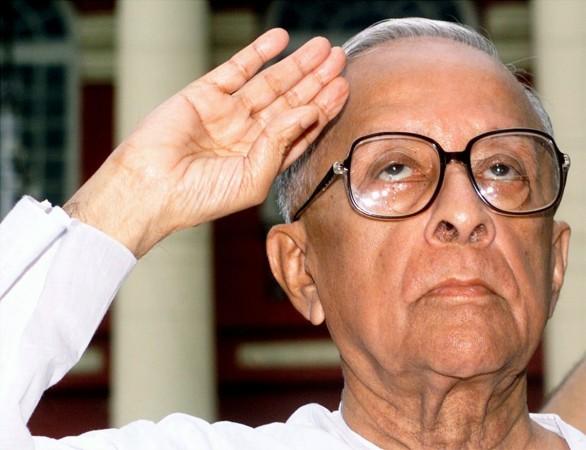
Things have improved under the TMC, but nothing as compared to the party's tall claims. Data revealed by a query under the Right to Information Act 2005 showed that the employment of Muslims in the Kolkata Police or the Kolkata Municipal Corporation has increased by less than 0.5 percent between 2008 and 2016 [the TMC was in power for five of these eight years].
Also, a report titled Living Reality of Muslims in West Bengal co-produced by Nobel laureate Amartya Sen's Pratichi Institute and Association SNAP, has claimed that Muslims in Bengal are economically more deprived than others, since unlike in other states, more Muslims live in the rural parts of Bengal.
According to the report, only one per cent of Muslim households had salaried jobs in the private sector, while nearly 50 per cent of Muslims in rural Bengal are labourers – either agricultural or non-agricultural.
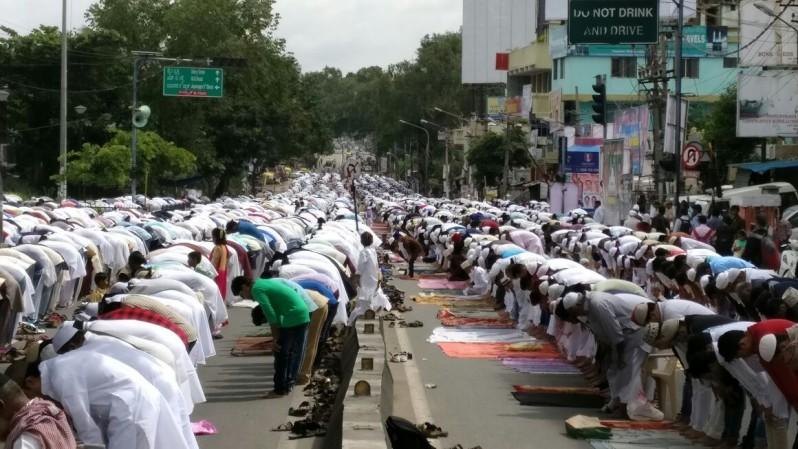
Also, only 3.4 per cent of Muslim households earn Rs15,000 and above in a month, while over 38 percent of Muslims living in rural Bengal earn a monthly wage of Rs2,500 or less. However, the budget allocation for minorities under the TMC's first year increased five times compared to that in the final year of the Left rule, the report added.
Administrative and economic debates over the Muslims' status in Bengal will continue, but politically, the Banerjee government is perhaps taking it too far. The TMC government has not come up with robust policies on entry of refugees from Bangladesh or the growing influence of terror modules with links to the neighbouring country, and this has given the BJP a shot in the arm.









